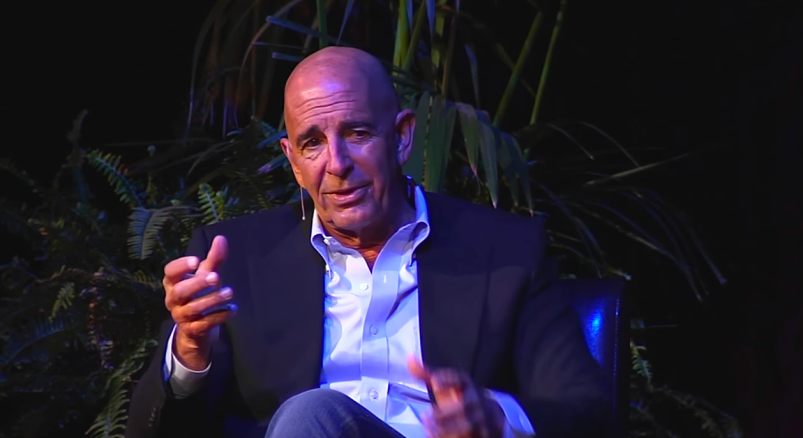I’ve spent the last few days putting together notes and trying to put together all the details of what was clearly the overriding and explicitly top foreign policy goal of the Trump campaign and transition: a rapprochement with Russia.
There’s one small thread of that story I want to note. We’ve previously discussed Tom Barrack, a longtime friend of the President and an extremely successful real estate investor. It is apparently through Barrack that Paul Manafort made his original approach to Donald Trump. The explanation of how that came about has never really added up. There’s clearly more to the story. We’ll come back to that.
Barrack was a major figure in the campaign, though he had no formal role. Unlike President Trump, Barrack has been an extremely successful businessman and real estate investor – real successful investments rather than razzmatazz and licensing deals. That appears to be core to the two men’s relationship. Barrack needs nothing from Trump. What I didn’t know was that Barrack has deep business ties to the Gulf States. His family background is Lebanese and he apparently had some basic Arabic speaking ability when he ended up in the Gulf as a young man. He either was or became fluent in Arabic and that allowed him to build the beginnings of his business empire with work and relationships in the Gulf.
Just before the 2016 election, Barrack wrote an article in Fortune calling for what he called a new “Marshall Plan” for the Arab Middle East. There are a number of different themes and arguments in the piece. It is a not unsophisticated series of arguments. But what struck me is that his central argument was an underlying theme of the Trump campaign: the need for a rapprochement with Russia.
Barrack argues that the de-escalation of US involvement in the Middle East had allowed Russia to gain a foothold in the region – there is some real truth to this, at least in a very general sense.
The competition for a caliphate has more contestants than just Iran, including ISIS, of course, as well as Turkey, and the Muslim Brotherhood. As the US withdraws, Russia is taking its place as the non-Arab power player in the Middle East. The chill in US-Russia relations has left President Putin free to defy Washington. Without predictable US-support, our allies may have only one direction to turn as Russia capitalizes on every USA misstep in the region.
The emerging alliance between Putin and Turkey’s Erdogan has evolved in perfect Kissingerian fashion; sovereign relationships can be as ephemeral as their counterparties’ interests. And now that Russia and Turkey seem to have a growing relationship, a counterbalancing alignment needs to be crafted between the GCC and the Arab nations.
As you can see, this isn’t necessarily a rose-tinted view of Russia. But it led to the key proposition, which Barrack was advancing as a Trump campaign surrogate: “The only solution is one that works with Russia and not against them. Our vacuum forced that hand, because we are no longer the lonesome superpower shaping Middle East foreign policy.”
I want to be clear. This is not an outrageous proposition. The article itself is no puff piece about Russia. But in the context of the Trump campaign, it seems significant because Barrack was quite clear on what was required: an end to antagonism with Russia, which clearly meant an end to all sanctions and the beginning of a collaborative relationship, first in the Middle East and likely elsewhere.
What does it mean? I’m not sure. My main takeaway is that the focus on a rapprochement with Russia simply permeated the Trump campaign and the Trump surrogate world. If there was collusion, that doesn’t mean everyone was in on it. And it’s not like Trump made a secret of his Russo-philia during the campaign. But with someone like Barrack, is this a matter of someone with no particular geopolitical views picking up the campaign’s talking points? (We certainly can’t assume that Barrack actually wrote this article himself, though perhaps he did.) Or did the Trump campaign become a magnet for various people who already thought we should have a better relationship with Russia? I’m not sure. For now, I simply put it down as an example of how pervasive this focus was in the Trump world.






